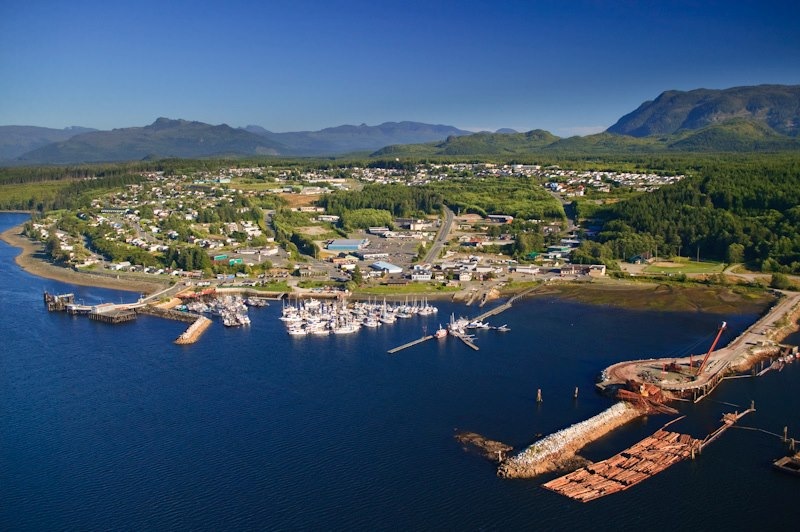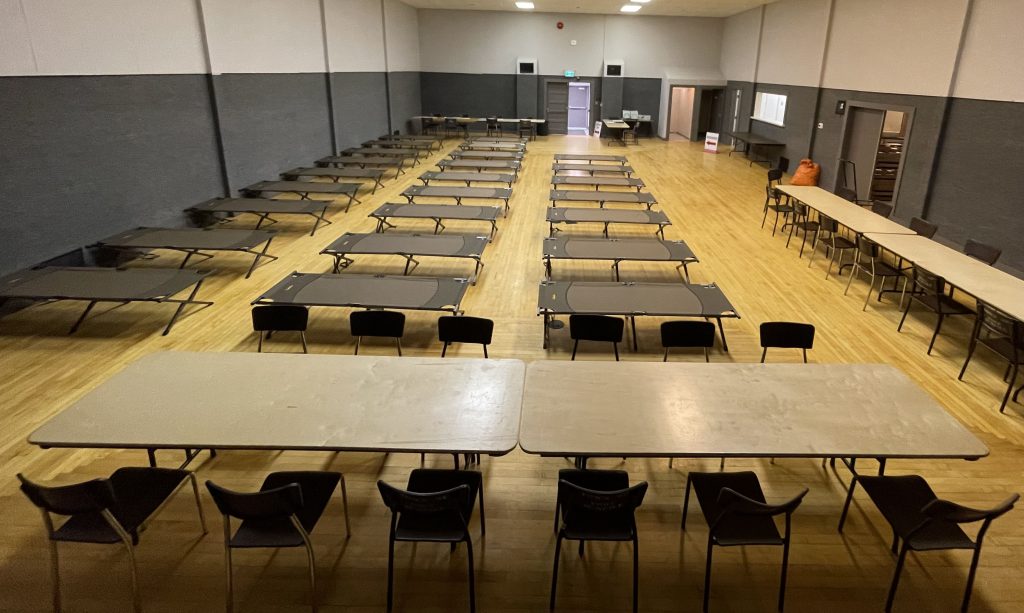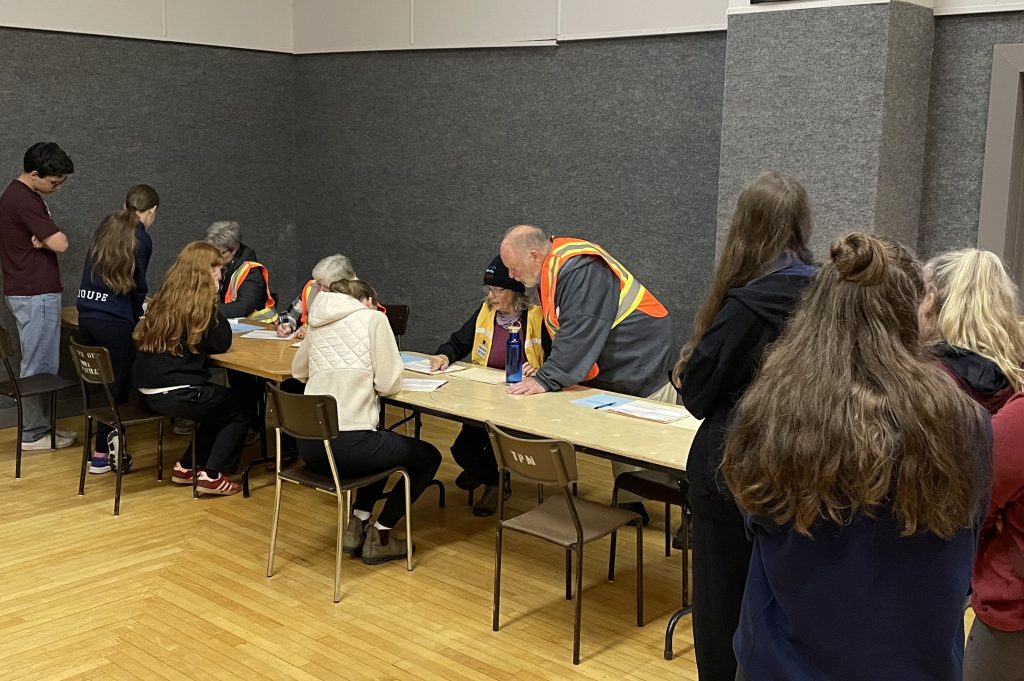The Community Spotlight series highlights communities, organizations and individuals using innovative approaches to build resilient communities. Emergency Support Services (ESS) reception centres and group lodging facilities are set up during evacuations, providing evacuees with safe shelter, information and support. In order to be ready when it matters most, ESS teams need real-world practice. Read on to learn what the Town of Port McNeill accomplished.
An opportunity presents itself
With a population of approximately 2,350, the Town of Port McNeill is a small and close-knit community on northern Vancouver Island. Chris Woo, community development and engagement manager for the town, is extremely passionate about strengthening the community’s resilience. In his short time as emergency program coordinator, he has helped build the Port McNeill ESS program, initiated a north island emergency management group with nearby First Nations and local governments and is a driving force for emergency management education on the north island.

Earlier this spring, the Island Ukuleles group reached out to the town looking for an inexpensive group lodging option while travelling for a performance. Group lodging typically means using local community centres, school gymnasiums or civic arenas as accommodation for large groups. The Island Ukuleles group often uses this approach during their tours to help them save money.
Woo saw more than just a request for somewhere to stay. He saw a mutually beneficial opportunity.
What if the group could act as evacuees during a live group lodging exercise? In exchange for accommodations, the Island Ukuleles group could help ESS volunteers test their plans in a way that classroom training could never replicate.
When Woo approached the parents and guardians of the group with his idea, they responded with a resounding yes and agreed that this was a fantastic opportunity. Not only that, but the group was also excited to participate.

Why group lodging exercises matter
Large-scale evacuations often require setting up group lodging facilities, which can be challenging to practice because they depend on having participants. Without evacuees, responders can only rehearse on paper. But with real people, the training comes alive.
These exercises provide hands-on practice, test emergency plans, reveal gaps and build habits that lead to faster, more coordinated responses during an emergency. Opportunities like this are rare gifts for smaller communities.
Practice, practice, practice
Volunteers from Port McNeill, Strathcona Regional District, Oceanside ESS and Quatsino First Nation worked side by side, adapting plans and solving challenges as they arose. The exercise took place over three nights at the ESS reception centre, with the Island Ukuleles group acting as evacuees.
“The exercise team’s adaptability showcased the strength and readiness of our community to welcome and support others in times of need. This exercise not only strengthened our ESS capacity but also highlighted the vital role of host communities in emergency preparedness,” said Woo.
Together, the ESS team practiced:
- Giving clear directions during reception centre registration and providing safety information
- Planning and delivering meals
- Gathering and responding to participant feedback
- Ensuring comfort and accessibility for all guests
- Coordinating recreational activities

Lessons learned
By transforming a lodging request into a hands-on, full-scale exercise, Port McNeill demonstrated how smaller communities can creatively prepare for large-scale evacuations. This approach:
- Provided mutual benefit: The group received affordable lodging, while the ESS team gained practice.
- Created realism: Real participants shared their questions, needs and feedback.
- Built community connections: Shared experiences between community members, participants and volunteers strengthened trust and collaboration.
- Inspires youth: Participants gained awareness of emergency management and may become future volunteers or leaders in their own communities.
“I hope that the youth who joined us will carry this lesson forward and perhaps step into an emergency services role themselves one day,” expressed Woo.
To show their appreciation, on the final evening the Island Ukulele group performed an impromptu concert complete with a goodbye song.
“This was an exercise unlike any I have been part of before, and I am profoundly grateful. I want to thank the dedicated volunteer team who worked alongside me and the Island Ukuleles group who embraced the opportunity, collaborated on planning and helped deliver an unforgettable itinerary,” said Woo.
Planning your community’s exercise
If your community would like support hosting an exercise or training opportunity, the Emergency Management and Climate Readiness training and exercise team is available to work with First Nations and local governments at no cost.
“Support is tailored to local needs and can include assistance with planning and design, scenario development, delivery and evaluation. First Nations, local government, emergency management partners and provincial and federal agencies can be invited to participate”, said Robb Dodds, exercise program specialist, Ministry of Emergency Management and Climate Readiness.

